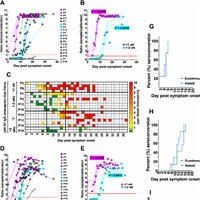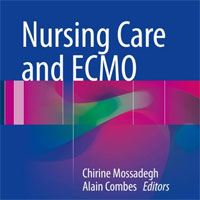Tag: study

Effect of Nurse-Led GDLPT on the Prognosis of Pneumonia in Sepsis Patients in the ICU
Nurse-led goal-directed lung physical therapy (GDLPT) improved the outcomes of pneumonia in sepsis patients, and was particularly associated with shortened mechanical ventilation duration and ICU stay, and reduced ICU mortality... read more

Management of Neonates With Tetralogy of Fallot
What are the differences in outcomes between a strategy of staged repair (SR) (initial palliation [IP] and subsequent complete repair [CR]) as compared with primary repair (PR) for infants with symptomatic tetralogy of Fallot... read more

Retrospective validation of a risk stratification tool developed for the management of patients with blunt chest trauma
The STUMBL score at a cut‐off of 15 predicted prolonged LOS and a score >18 predicted mortality sufficiently to be clinically useful for these outcomes. The STUMBL Score is composed of five simple predictors; patient... read more

Central and peripheral nervous system complications of COVID-19
CNS and PNS complications were common in hospitalized COVID-19 patients, particularly in the ICU, and often attributable to critical illness. When COVID-19 was the primary cause for neurological disease, no signs of viral... read more

Long-Term Implications of Abnormal Left Ventricular Strain During Sepsis
Among patients with sepsis and pre-existing cardiac disease who survived to ICU discharge, left ventricular global longitudinal systolic strain demonstrated a U-shaped association with cardiovascular outcomes through 24 months.... read more

Insight into ECMO, mortality and ARDS
ARDS is a severe disease with a high mortality rate despite ECLS therapy. Although endpoints and timing of the evaluations differed from those of the CESAR and EOLIA studies and the Extracorporeal Life Support Organization... read more

Study finds genetic clues to pneumonia risk and COVID-19 disparities
Researchers at Vanderbilt University Medical Center and colleagues have identified genetic factors that increase the risk for developing pneumonia and its severe, life-threatening consequences. Their findings, published... read more

Is chloroquine or hydroxychloroquine useful in treating people with COVID-19, or in preventing infection in people who have been exposed to the virus?
COVID-19 is an infectious respiratory disease caused by a coronavirus called SARS-CoV-2. If the infection becomes severe, people may need intensive care and support in hospital, including mechanical ventilation. Drugs... read more

Temporal development and neutralising potential of antibodies against SARS-CoV-2 in hospitalised COVID-19 patients
Antibody responses are important in the control of viral respiratory infection in the human host. What is not clear for SARS-CoV-2 is how rapidly this response occurs, or when antibodies with protective capability evolve.... read more

RECOVERY trial shows tocilizumab reduces deaths in patients hospitalised with COVID-19
The NIHR-supported RECOVERY trial has shown that tocilizumab - an anti-inflammatory rheumatoid arthritis treatment - reduces the risk of death for hospitalised patients with severe COVID-19. Researchers also found that... read more

Safety of RSI in an Emergency Training Network
Implementation of an evidence-based care bundle and audit of practice has created a safe environment for trainees to learn the core critical care skill of Rapid sequence intubation (RSI). In our setting, checklist use was... read more

Resident competencies before and after short ICU rotations
A monthly multi-competency assessment for specialty residents rotating in the ICU is likely feasible for most programs with appropriate resources, and generally acceptable for residents. Specialty residents' cognitive reasoning... read more

COVID-19 Awake Proning – All Hype?
In this prospective meta-analysis of observational studies of patients with acute hypoxemic respiratory failure due to COVID-19, APP did not result in lower intubation or mortality rates, despite reported improvements in... read more

Mediastinal lymphadenopathy may predict 30-day mortality in COVID-19 patients
Along with older age and consolidation pattern,enlarged mediastinal lymphadenopathy was found to be an independent predictor of 30-day mortality in patients with COVID-19. Although enlarged mediastinal lymphadenopathy... read more








